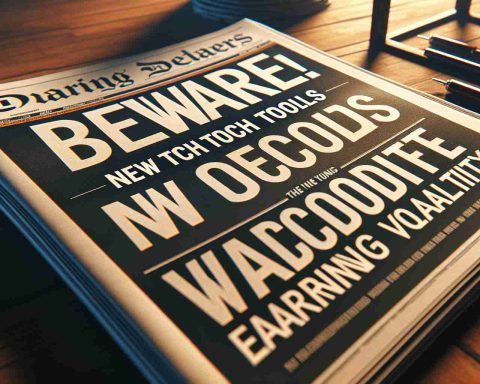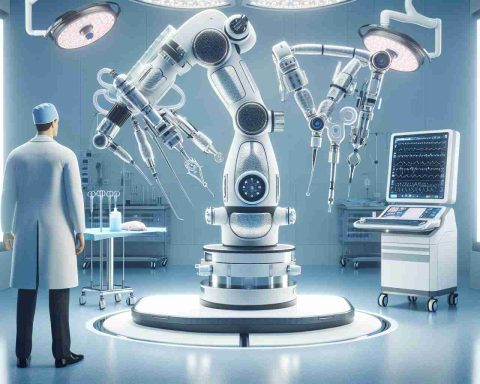A Nine-Year-Old’s Struggle for Empowerment
In Utah, a family’s hopes hinge on a reconsideration from their insurance company regarding a vital prosthetic for their daughter. Remi Bateman, just 9 years old, has faced immense challenges since birth, having been born without a hand below the elbow. While she has managed with basic prosthetics throughout her life, the Bateman family believes that a state-of-the-art bionic arm, known as the Hero Arm, could dramatically enhance her everyday experiences.
Remi’s mother, Jami Bateman, shared with local media that this advanced prosthetic would enable her daughter to use utensils independently and significantly improve her quality of life. Unfortunately, their insurance provider, Select Health, has denied their request on two separate occasions, claiming the bionic arm lacks medical necessity, despite medical documentation advocating otherwise.
Facing a daunting financial burden, Jami initiated a GoFundMe campaign, as the out-of-pocket cost for the Hero Arm amounts to an astonishing $24,000. Moreover, the emotional toll on Remi has been profound; she has endured bullying related to her prosthetics and believes that the new arm could boost her confidence as she continues to grow.
As of mid-December, the GoFundMe has garnered $29,000, offering hope not just for Remi but also raising awareness for other families navigating similar challenges in accessing vital assistive technologies.
The Journey to Empowerment: A Young Girl’s Fight for a Bionic Arm
Introduction
In the heart of Utah, the story of a nine-year-old girl, Remi Bateman, has sparked conversations about the challenges of accessing advanced medical technologies. Facing the daily realities of living with a prosthetic, Remi and her family are advocating for a state-of-the-art bionic arm, the Hero Arm, which they believe could significantly enhance her quality of life. This case not only highlights the personal struggles of a family but also sheds light on broader issues related to insurance policies and the accessibility of prosthetic technologies.
Overview of the Hero Arm
The Hero Arm is a lightweight bionic prosthetic that utilizes advanced technology to offer a range of functions, allowing for more independence in daily tasks. With features like:
– Multi-Grip Options: Users can switch between different grips to accommodate various tasks, from holding utensils to carrying objects.
– Adaptive Control: The arm learns the user’s movements, providing a more intuitive experience.
– Stylish Designs: Customizable appearances that can match the user’s personality, helping to boost confidence.
These features make the Hero Arm a revolutionary option for young amputees like Remi, who seek to improve their self-sufficiency and social integration.
Pros and Cons of the Hero Arm
Pros:
– Enhances independence in everyday tasks.
– Reduces the likelihood of bullying by improving the functionality of the prosthetic.
– Customizable and fashionable, appealing to younger users.
Cons:
– High cost, often not covered by insurance.
– May require periodic updates or adjustments, incurring additional expenses.
– Initial adaptation period can present challenges for new users.
The Financial Challenge
The Bateman family faces a tough financial reality as they seek to cover the $24,000 cost of the Hero Arm. Despite their attempts to have insurance cover the prosthetic based on medical necessity, Select Health has denied their claims. This situation raises critical questions about the adequacy of insurance policies related to advanced prosthetics and the burden placed on families.
Community Support and Awareness
In response to the financial strain, Jami Bateman initiated a GoFundMe campaign that has successfully raised over $29,000. This effort not only aims to secure Remi’s prosthetic but also highlights a growing trend in community-driven fundraising for medical needs. The campaign serves as an inspiration, showcasing how collective efforts can pave the way for change and support for families in similar situations.
FAQs about Bionic Prosthetics
Q: What are bionic prosthetics?
A: Bionic prosthetics are advanced artificial limbs that mimic natural movements, often equipped with sensors and motors to enable more functional use.
Q: How can families afford expensive prosthetics?
A: Many families turn to crowdfunding, community support, or nonprofit organizations dedicated to assisting with medical costs and prosthetic availability.
Future Considerations
With ongoing advancements in medical technology, the market for bionic prosthetics is expected to grow. Advocacy for better insurance coverage and accessibility can help families like the Batemans achieve the technological help they need. Community awareness and support play crucial roles in this journey.
Conclusion
The story of Remi Bateman illuminates the intersection of medical technology, family dynamics, and the realities of healthcare insurance. As communities rally together, there is hope for a future where advanced medical devices like the Hero Arm are accessible to those who need them, enabling children and families to thrive.
For more information on bionic prosthetics and how they’re redefining independence, you can visit this link.



















